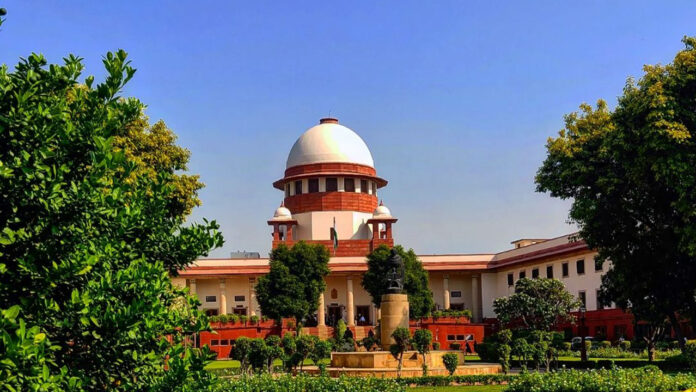The Supreme Court on Tuesday posed a sharp question: Can a Governor stop a money bill? The query came as a five-judge Constitution Bench examined the scope of Article 200 of the Constitution during hearings on a presidential reference.
The bench, led by Chief Justice BR Gavai and including Justices Surya Kant, Vikram Nath, PS Narasimha, and AS Chandurkar, is considering whether courts can impose timelines for Governors and the President to act on bills passed by state legislatures.
The Central Question
The judges noted that if the Governor’s power to “withhold” a bill under Article 200(1) is read independently, it could even apply to money bills.
Justice Narasimha remarked, “If the Governor’s independent power to withhold a bill is recognised, then even a money bill can be straightaway withheld. Can he stop a money bill?”
Senior advocate Harish Salve, appearing for the Maharashtra government, agreed that this interpretation was possible.
The Union government has argued that if a Governor withholds a bill, it lapses, and the proviso to Article 200 (which allows the bill to be returned to the Assembly, except in the case of a money bill) does not apply.
The bench, however, flagged the implications. If “withholding” stands alone as a fourth option beyond assent, return, or reservation for the President, then a Governor could effectively veto legislation, including money bills—something not explicitly provided for in the Constitution.
Justiciability of Governor’s Decisions
Salve argued that the Governor’s discretion to withhold assent is not open to judicial review.
“If the Constitution vests high discretion in a high functionary, courts cannot read conditions into it,” he said. “Assent to a law must come from the Governor or the President, not the judiciary. Courts cannot step in and grant assent under Article 142.”
He emphasized that Article 200 contains no timelines or standards for when assent should be given, withheld, or referred to the President, leaving the issue beyond judicially manageable standards.
The Larger Debate
The discussion comes amid rising tensions between state governments and Governors. Earlier this year, the Supreme Court held the Tamil Nadu Governor’s decision to withhold assent to ten bills as “illegal and arbitrary.” The Court even invoked Article 142 to declare those bills deemed assented, setting a three-month timeline for presidential clearance.
In May, President Droupadi Murmu referred the matter to the Court under Article 143(1), asking whether courts can prescribe timelines for Governors and the President in such cases.
What Next?
The Court’s eventual ruling will carry major implications for Centre–state relations and the functioning of state legislatures. If Governors are held to possess an unchecked power to withhold assent—even on money bills—it would reshape the balance of constitutional authority.
The hearing will continue, with Salve concluding his arguments before lunch and other senior advocates expected to present submissions in the next session.
( inputs- ETV Bharat)








